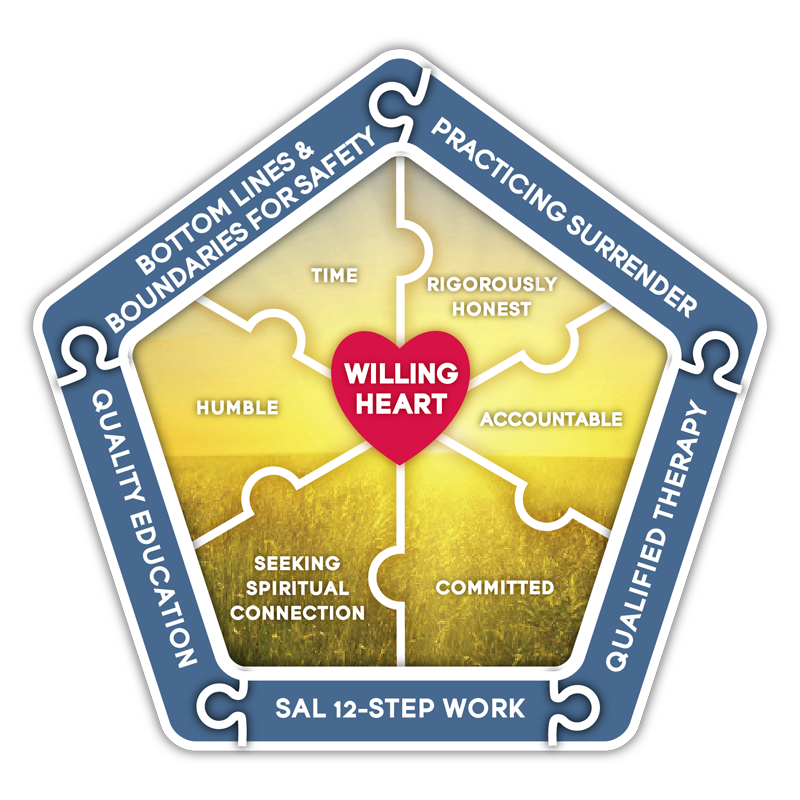Our Approach to Recovery
S.A. Lifeline Recovery Puzzle
A puzzle is not complete without every piece in its place. Likewise, every piece of the Recovery Puzzle is unique and an important part of a comprehensive program of working recovery from sexual addiction and betrayal trauma.
When we intentionally seek to incorporate each of these pieces in our recovery journey, healing from compulsive pornography use, sexual addiction, and betrayal trauma IS possible.
S.A. Lifeline’s Recovery Puzzle illustrates the essential pieces that are required for lasting recovery. We can break this puzzle into two parts: the inner Heart & Mind pieces (e.g. willing heart, rigorous honesty, humble, accountable, committed, seeking spiritual connection) and the outer pieces which represent the active work needed for recovery (e.g. quality education, qualified therapy, SAL 12-Step work, boundaries and bottom lines for safety, and practicing surrender).

